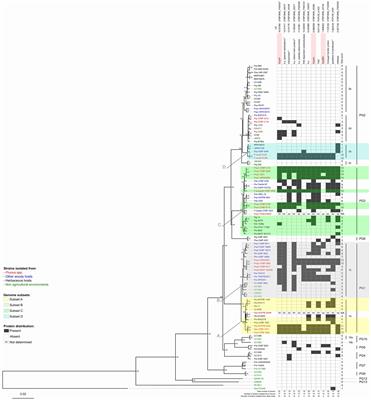CORRECTION
Published on 15 Nov 2022
Corrigendum: Comparative genomic analysis of the lettuce bacterial leaf spot pathogen, Xanthomonas hortorum pv. vitians, to investigate race specificity
doi 10.3389/fmicb.2022.1044656
- 1,578 views
- 1 citation
13k
Total downloads
66k
Total views and downloads
CORRECTION
Published on 15 Nov 2022
EDITORIAL
Published on 31 Aug 2022
ORIGINAL RESEARCH
Published on 03 May 2022

ORIGINAL RESEARCH
Published on 18 Apr 2022

ORIGINAL RESEARCH
Published on 14 Apr 2022

ORIGINAL RESEARCH
Published on 18 Mar 2022

ORIGINAL RESEARCH
Published on 02 Mar 2022

ORIGINAL RESEARCH
Published on 18 Feb 2022

ORIGINAL RESEARCH
Published on 01 Feb 2022

ORIGINAL RESEARCH
Published on 25 Jan 2022

ORIGINAL RESEARCH
Published on 12 Jan 2022

ORIGINAL RESEARCH
Published on 27 Oct 2021
